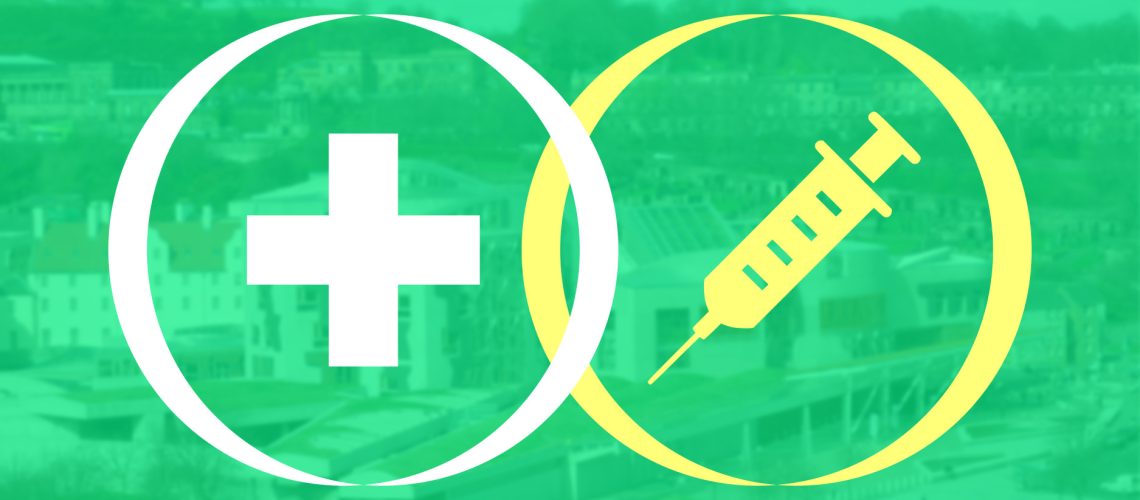In 2020, during the outbreak of the COVID-19 pandemic, more under 60s died of drug-related causes than COVID-19. Among under 75s, accidental drug and alcohol deaths were the fourth biggest killer, just behind COVID-19, lung cancer and heart disease.
The most conservative sections of Scottish society minimise drug-deaths as the personal troubles of “addicts”. Politicians on the centre-left and right weaponise the issue in media releases as a way to score political points against the SNP, while our nationalist government dangles the prospect of a comprehensive solution behind the bars of independence. Meanwhile, people continue to die.
We socialists reject the idea that society’s problems boil down to the problems of individuals. We reject the idea that it’s pure coincidence that people from the most deprived areas in Scotland are more than 18 times more likely to die from drugs than people living in the wealthiest areas. We reject the idea that these deaths are a problem of working class culture too. Drug deaths are a structural problem, rooted in the alienating nature of 21st century Scottish society — a symptom of the poverty and social isolation inherent in capitalist development.
Drug culture in Scotland and beyond
Scotland is no different to the United Kingdom in the respect that we live within a highly stratified society. The rich get rehab, access to therapy, the top jobs, political power and many blank cheques from the bank of mum and dad. The ruling class of society can afford to live like cats with nine lives. Working class people, for comparison, often have no safety net. The little social security that our most deprived communities relied upon to stay out of severe poverty has been cut to bits. Jobs and industry that used to support our communities have been exported to poorer, more exploitable economies in different countries. Social solidarity that once held together communities has been shattered by Thatcher’s brand of anti-social economics, putting people against each other in competition for privatised jobs, housing and public services.
It is no coincidence that the sharp rise in problem drug-use runs alongside the collapse of social and economic wellbeing in working-class communities. A sad case study of this change in material conditions can be seen in the rise of poly-drug use — mainly opiates (e.g. heroin) and benzodiazepines (e.g. xanax) — in communities that were forcibly deindustrialised by Thatcher’s Conservatives. This rapid deterioration has been most strongly seen in Glasgow and the West of Scotland where 58.1% of industrial employment was lost between 1971 and 2005.
The rising prevalence of cocaine in working-class communities also cannot be understated, foreshadowing the next giant of problem drug-use after heroin. It is within the context of increasingly precarious job markets that cocaine finds its social acceptability. Working faster and harder is now valued more than ever before, and social media continues to enforce hustle culture by shaming anyone who can’t keep up.
Recent data from the National Records of Scotland confirms this trend. Since 2008, the involvement of cocaine in drug-related deaths has increased from 6% to a staggering 30% in 2021. This alarming rise is consistent with drug surveys conducted among students across the UK and the Republic of Ireland, where cocaine has emerged as the second most popular drug among individuals aged 15 to 34.
While the erosion of communities and toxic workplace cultures put working-class people more often in situations of dangerous drug-use, these should not be confused as the sole reason for why people use drugs. For thousands of years drug-use has been an accepted part of life all over the world and there are a great variety of reasons why people experiment with drugs.
Cultures from the Middle East to Latin America have cultivated and smoked cannabis for centuries. In Scotland and beyond, students and young people experiment with different drugs as part of their exploration of the wider world. Ravers indulge in ecstasy and psychedelics to enhance their experiences and indigenous tribes in the Americas use ayahuasca, magic mushrooms and peyote as part of community rituals. Even wild animals partake in their own forms of recreational drug use.
We also can’t forget nicotine, alcohol and caffeine — all of which are legal psychoactive substances which play huge roles in Scottish culture. By all measures, these substances are drugs.
In the USA, Mexico and Canada, states are beginning to decriminalise and legalise cannabis and psychedelics. These drugs, just like alcohol and nicotine, can become addictive or induce harm, yet these societies continue to function just the same as before.
The problem Scotland faces is not — as the “Just Say No” approach suggests — simply the use of drugs.
The failures of “Just Say No”
“Just Say No” is the battle cry of warriors fighting in the War On Drugs. It was a phrase popularised by Nancy Raegen, former First Lady of the United States of America, and it has since determined the approach of politicians towards the issue of drugs.
The War On Drugs was declared in 1971 by US President Richard Nixon. Fighting drugs was a convenient cover for cracking down on hippies, political activists and black communities. No-knock warrants allowed police officers to break into the homes of whoever they suspected might have drugs, breaking up political organising efforts which challenged US imperial ambition (but don’t just take it from us, former Nixon adviser John Ehrichman admitted this.)
The United States of course didn’t keep this obsession with drugs to themselves. They exported it to countries across the world, setting aside tens of billions of dollars each year to influence the policies of governments across the world. It was because of the US that the United Nations adopted their commitment to a “drug free world”.
Drug-free — apart from alcohol and nicotine that is.
According to the UN World Drug Survey for 2022, alcohol closely follows nicotine as the world’s most harmful drug, with 2.4 million related deaths attributed to drink per year. Nicotine is the greatest driver of drug-related deaths in the world, being a key factor in 8.7 million deaths per year. Measuring social phenomena in terms of deaths per year is not an appropriate way to understand the complexities of life and human behaviour — but clearly there’s some hypocrisy in banning drugs under the banner of public safety while binge drinking culture is only met with finger wagging.
Despite their harmful effects on public health, the legal, regulated status of alcohol and nicotine gives the opportunity for people to come forward with their problems in order to receive support.
Amidst rising drug deaths in Scotland, and a lack of government action, anti-overdose campaigner, Peter Krykant, sought to provide that same support for drug users by establishing an Overdose Prevention Clinic (OPC) in Glasgow City Centre. He was hounded by police, and due to the operation resting upon volunteers who risked jail time every time they went out, the project had to cease. Similar clinics operate legally and successfully in Denmark, Norway, Portugal, and many other countries. But because the Just Say No doctrine dictates the UK policy over health-based drug intervention, saving lives is left up to volunteers breaking the law.
At a recent Terminal V event in Edinburgh, one young person, 19 year old Maya Nager, died after taking an “unknown substance”. While we can only speculate what that substance was, we can say for certain that without adequate drug checking facilities there will be more and more instances like these as street drugs continue to become less pure.
A survey conducted by the NUS sheds light on the use of MDMA/ecstasy among students, indicating that a significant 67% of respondents have either taken or currently take these substances, often without any form of testing.
In the case of ecstasy pills, which are often taken by ravers and festival goers, there can be all kinds of other substances cut with the MDMA inside the pills. While organisations like Crew and The Loop have been working to make drug checking facilities more common, youth drug deaths will still continue to happen at parties, in clubs, and at events like Terminal V.
Until the stigma of drug-use is removed and adequate legislation is made for harm reduction intervention, Just Say No will continue to keep young people uninformed and unprepared for the potential dangers of drug use.
Thanks to the hard work of harm reductionists, from Peter Krykant to Crew, the Scottish Government and its ministers have expressed a growing interest in harm reduction practices, yet Westminster’s reserved power over Scottish drug legislation is still to face a serious challenge. All the while, the SNP continue to defer this responsibility to task forces and partnerships, even though harm reductionist solutions have been present in Scottish political discourse for nearly two decades.
Especially now when the UK Government appears to be tightening its restrictions on drug-use (see: the new Nitrous Oxide ban), the lack of substantial resistance from Holyrood means more lives will be lost.
We’re calling for help, not harm
In 2022, an estimated 209 million people consumed cannabis products. 20 million consumed ecstasy. 21 million consumed cocaine and 61 million opioids. Of the estimated 269 million people who used drugs in 2018, 7% experienced drug-use disorders, ranging from problem relationships to addiction.
For more and more young people, abstinence-only drug rhetoric is seen for what it is — propaganda. Unfortunately, much of the reaction to ridiculous “Just Say No” stories are no more helpful for the development of a healthier substance-use culture.
The right wing of the drug decriminalisation movement loves to focus on individuals. To them, drugs are not dangerous (for they smoke weed every now and then and haven’t died yet). In their eyes, people who become addicted to drugs are entirely at fault. These are the same contrarians who believe we should abolish benefits and let corporations run everything — enabling the exact form of monopoly capitalism which has fuelled alcohol and nicotine health crises for decades.
Let’s agree as socialists: no drug is entirely safe, whether legal or illegal. But people will always consume drugs, and no policy can truly eliminate their use. What can make a difference is the policy and structure we implement to support people when things go wrong.
We might want to look to Portugal and their approach to drug deaths for inspiration. Back in 2001 approximately 1% of Portugal’s population were addicted to heroin. The rate of HIV infection became the highest in the European Union. The solution? Decriminalisation of possession and consumption of all illicit substances. Instead of being criminalised for being caught with a personal supply you could be given a warning, a small fine, or told to appear before a local commission consisting of a doctor, lawyer, and a social worker.
“The most important factors to any sort of recovery for someone who is dependent on substances is a roof over their head, calories in their system and welfare services in good contact. Without the simple requirements of housing, food, and well-being, Scotland will continue to have the crisis it is currently struggling with.”
Saket Priyadarshi, medical lead for the Greater Glasgow & Clyde Alcohol and Drug Recovery Service speaking at Anyone’s Child event (11th May 2023)
The Portuguese opioid crisis stabilised and problematic drug use fell dramatically, as did HIV and hepatitis infection, overdose deaths, drug-related crime and incarceration rates. To dive into specifics, HIV infection fell from 104.2 new cases per million people in the year 2000, to 4.2 cases per million people in 2015. However this can’t entirely be attributed to the change in law.
A change in attitudes was also responsible, as the Portuguese people had to battle socially conservative governments who would’ve otherwise wished to return to a “war on drugs” approach. Decriminalisation allowed for more open conversations about drug use and provided addiction support services greater autonomy needed to address the issue. Among many other things, a key cultural shift from seeing drug users as “junkies” to “people who use drugs” and “people who have addiction problems” was key in the recovery. Summarised, they started treating drug addiction as a health issue rather than a criminal one.
Today, Scottish socialists are challenging the British war on drugs policies through our campaigning coalition, Help Not Harm. Through our network of socialist and left wing groups in Stirling, Dundee, Glasgow and Heriot Watt, we have been presenting the call for a health based approach to drug use. Our demands for harm-accessible reduction resources, drug testing kits and non-punitive approaches to people who use drugs have been adopted enthusiastically by student unions and the Scottish National Union of Students (NUS), but we still have a long way to go.
The next stage of our campaign is to set up local campaign groups who will encourage Scotland’s councils and local partnerships to maximise their use of harm reduction interventions. We will be calling for these decision-makers to prioritise options which support young people’s awareness of harm reduction and how to set boundaries in social circles where drugs are present. We would also like to see community hosted overdose training sessions; provision of harm reduction resources in public spaces; and extension of outreach programs to people recovering from addictions.
Parallel to these efforts, we will be continually applying pressure on the Scottish Government to lodge a section 30 order with Westminster, scrapping the outdated Misuse of Drugs Act in Scotland and declaring drug-use as a health matter going forward.
If you think you can help us in these efforts, don’t hesitate to get signed up today!



